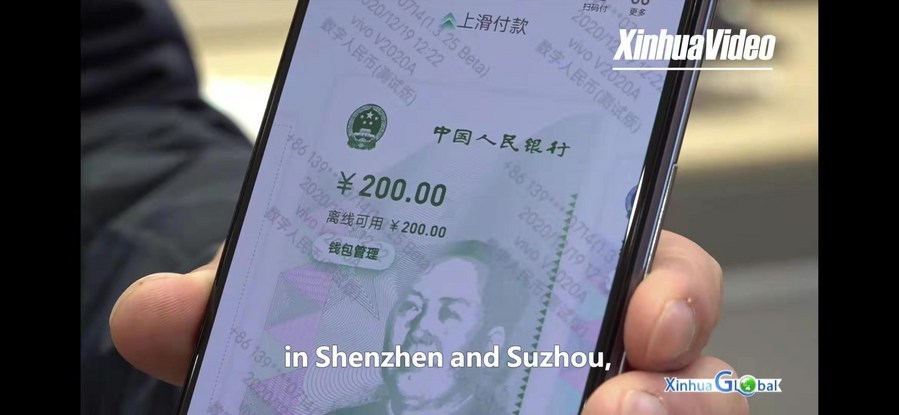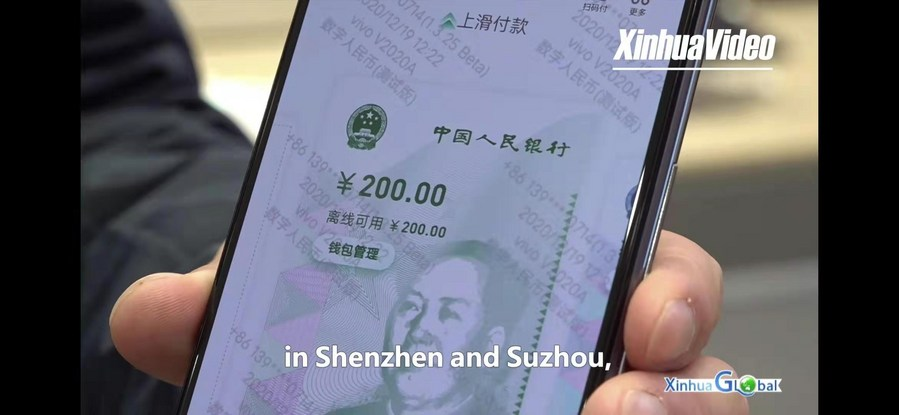
BEIJING, Dec. 30 (Xinhua) -- Beijing, capital of China, launched the pilot program of digital currency on Tuesday in its Fengtai District, allowing authorized consumers to pay through digital currency wallet, reported Beijing Daily.
This has been the first time that the digital currency was tested in Beijing, after great feedback received in previous pilot areas of Shenzhen, Suzhou, Xiongan and Chengdu.
The Fengtai District, where the research institute for digital currency of People's Bank of China (PBOC) is based, is a cradle for financial technology (fintech), promoting various innovative pilots, such as digital currency and intelligent insurance. It is also a major demonstration zone for expanded opening up of service sector in the capital city.
For users, using digital RMB wallet is rather similar to using non-bank payment platforms like Alipay or WeChat Pay. Users download the wallet app on their phone in which they can store their funds, and make payments by scanning QR code.
However, in essence, digital RMB wallet is very different from non-bank payment platforms. Unlike non-bank payment platforms that require users to link bank accounts, a digital wallet could be opened with any unique personal identification such as driving license or a mobile phone number, said Dong Ximiao, a think-tank researcher with the Asian Financial Cooperation Association (AFCA).
Another important feature of digital RMB wallet is that it can be used in basements, on high-speed trains or planes where the internet signal is weak or there is no internet, just like notes and coins.
In a sum, digital currency will make payments safer and quicker. With encryption technology, people can trace where money goes. The pollution and waste caused by notes circulation can also be avoided.
Looking at the introduction of digital yuan from a broader perspective, the central bank could better monitor the currency, thus have more options of monetary policies in its toolbox and fend off financial risks, said experts.
(Edited by Li Shimeng with Xinhua Silk Road, lishimeng@xinhua.org)




 A single purchase
A single purchase









